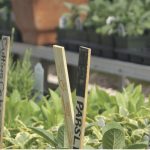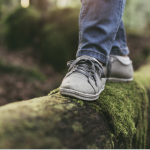
Hacks for reintegrating into a post-covid world
By Cris McCullough, MA, Holistic Counselor
Post-covid reintegration
It’s been a challenging two years! But here we are, gazing into what has been described as, “the new normal.” We all have made sacrifices of one kind or another, and now we are faced with the challenge of reintegrating and finding our personal rhythm that helps us be and stay healthy. There are many ways to find healing that can assist us in embracing the new normal. The Daily Key editorial team asked some of our trusted colleagues from various disciplines the question: “What are your suggestions/tips/hacks to help folks recover, renew, and master the act of post-covid reintegration?”
Reintegrating with New York State therapist James M.:
How can isolation affect a person’s well being?
For many, at the start of the pandemic and working from home wasn’t bad. However, over time, the feeling of loneliness comes over us. We yearn for connection, a connection that Zoom can’t fully provide. When I say the brain works best in connection to another brain, it’s true.
Physiologically, we begin to feel unbearable aloneness. Since the beginning of the pandemic, stress, anxiety, depression and insomnia have increased significantly over all segments of the population. Some medicated with alcohol or drugs to allay the feeling of loss; people were grieving. Our routines were gone. What we once took for granted was gone. Family and friends “get togethers” were gone. The list could go on forever. Having physical distance from the someone you love can be hard. Many adults struggle to adapt to the new social norms and routines.
Life changed significantly and people reacted to it negatively at first but eventually people adapted as best they could or rebelled, as we saw.
How important is it to try new things consistently?
The brain thirsts for novelty. Research shows that trying new things is very important to our wellbeing. The term neophilla is what it is called, and it is a predictor of longevity.
People who seek out novel experiences live healthier and happier lives. Novelty allows us to expand our minds. Trying new things, putting the brain in novel experiences (unique situations) causes the brain to pay attention and really think (working harder, like exercise does for the body).
Lastly, trying new things overcomes the power of fear which at times over powers our lives.
Should I take a new job that may be more creative or pays more, or stay where I’m comfortable but possibly unhappy? Asking someone out on a date, it’s scary.
What are some ways someone can “rejoin” society after this pandemic?
People reacted to the pandemic by getting out into the open spaces, by trying to socialize, safely. They looked for alternatives to the gym for physical outlets. People looked for novel ways to replace what has been lost due to the pandemic. Last year, there was a seed shortage in the spring of 2021. People were starting gardens, raising chickens, adopting dogs for companionship, moving to the woods to connect with nature. Exercising by hiking, walking or just getting out. Biophillia is defined as the innate human instinct to connect with nature and other living things. Biophilic design has been found to support cognitive function, physical health and psychological well-being.
People will return to what they lost during the pandemic, like going back to school, sports or social activities because we are wired for it.
Stay connected to self
Victoria Williams, MA is a Spiritual Counselor who offers gentle soul support and guidance in her role as therapist. She gently encourages us to be mindful of the inter-relationship of all things.
Her advice for the new normal is to, “Honor your own body’s wisdom and act always with compassion and kindness towards others. Show gratitude to the earth always and reduce your carbon footprint. Live and love wholeheartedly and stay connected to your soul.”
Honor yourself: Start slow, and check in
Kathy Mack, MPH, MA, is a wholistic expressive art therapist coach and former healthcare administrator. She compares reintegration to the metaphor, “is it safe to get back in the water?”
Kathy offers a checklist that suggests, “dipping your toe in the cold ocean first, then proceeding to full immersion.” In other words, the first steps are to take the “temperature” of your situation by addressing these questions:
- Have I met the basics of safety and risk?
- Do I have anxiety when I consider joining a large group of people?
- What feels right for me?
The important thing is that you identify what you are experiencing and give yourself permission to do what is right for you.
Now, make a plan. Do you need to take it slow—join what you consider safe groups first, then proceed to more interactions. The goal is to check in with yourself— use the metaphoric “toe-test,” and then take it step by step for what feels right for you…even if others in your circle insist on some other way.
Honor our shared human experience: We all have wounds
Maria Sorensen, MA is a licensed chemical dependency professional who assists clients who may have developed depression, substance abuse, or self-destructive behaviors to deal with the fear and uncertainty in a Covid world. Faced with day-by-day reminders of the impermanence of life, people may need assistance to not only process their grief, but with general post-covid reintegration.
Maria suggests developing strategies for a self-care practice. Meditation, gratitude, prayer, or another spiritual practice may offer comfort. Reduce or unhook from media exposure, eat well, get out into nature and connect with others. As we emerge from our isolation, we can expect some awkwardness with face to face encounters, she said. Don’t forget the positive as we rethink our priorities, ponder the positive changes we did make and above all, honor our collective human experience. When we stay awake and stay aware, more things may happen.
Honor the needs of your body: Keep your immune system healthy
Amber Worthen RD, LDN, CPT is a dietician counselor at Eat To Live in Newport, RI. She suggests that a healthy diet is one of the first lines of defense in combating pathogens. Her tips are:
- Supplement with Vitamin D to help reduce depression.
- Increase fresh, local fruits and vegetables to boost antioxidant intake. Include a minimum of three colors in every meal.
- Increase your intake of raw green vegetables to support the liver.
- Sip bone broth (preferably grass fed and organic) to support gut health. Our gut is our body’s first step in defense against pathogens.
- Increase your intake of anti-inflammatory herbs such as garlic, ginger, cayenne, turmeric, and black pepper.
- Hydrate! Water is our body’s main way of detox. Add in lemon for further enhancement and increased absorption.
- Dry brush daily to improve circulation of the lymphatic system.



 Reintegrate back into society Peanut Butter Visuals
Reintegrate back into society Peanut Butter Visuals  Reintegrate back into society Peanut Butter Visuals
Reintegrate back into society Peanut Butter Visuals